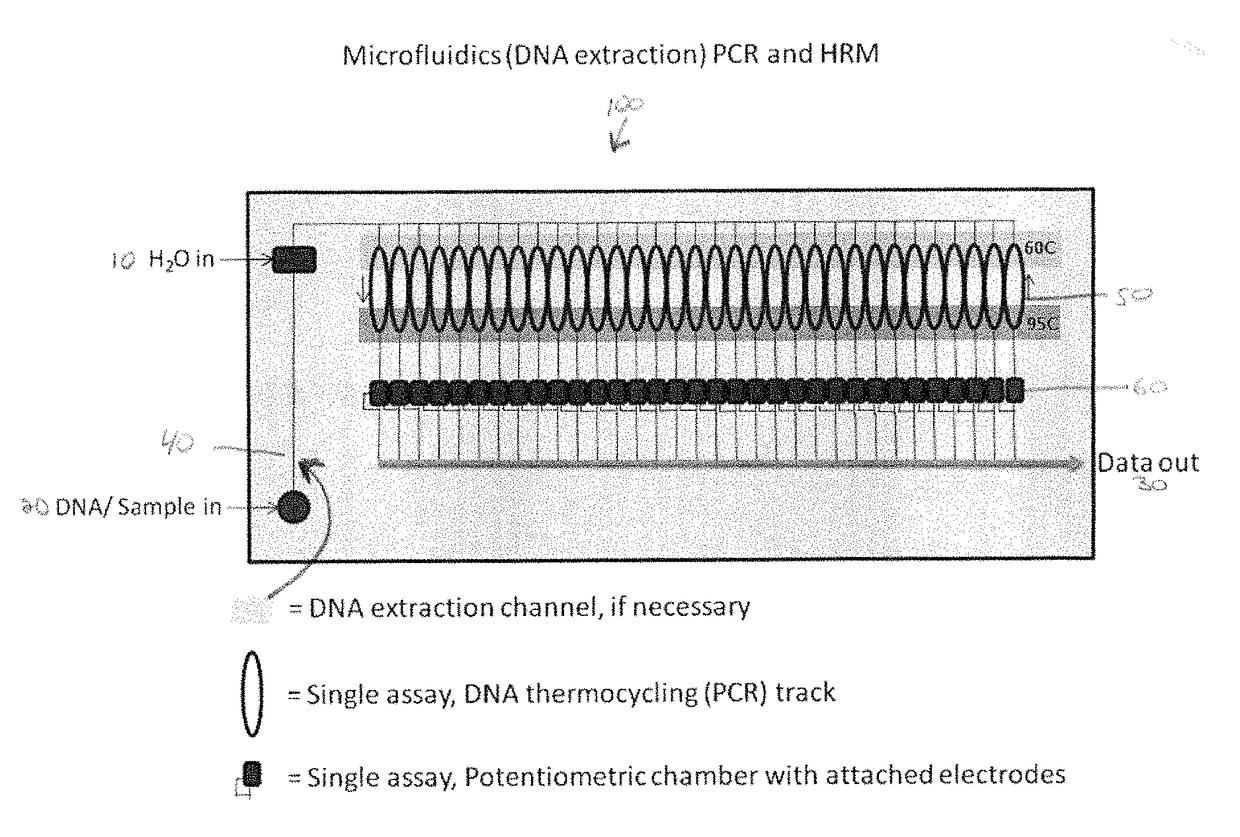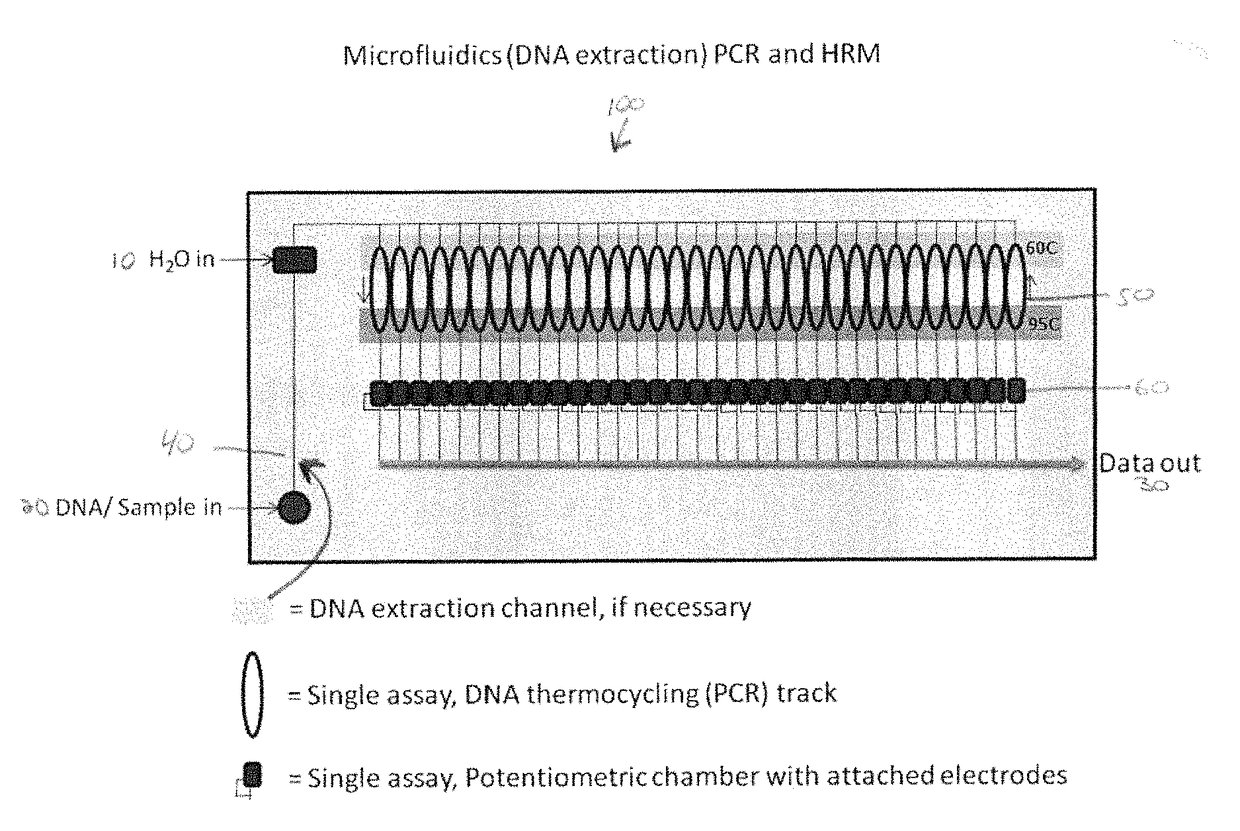Microfluidics polymerase chain reaction and high resolution melt detection
a polymerase chain reaction and microfluidics technology, applied in the field of microfluidics, high-resolution melt analysis and microfluidics, to achieve the effect of arugged design
- Summary
- Abstract
- Description
- Claims
- Application Information
AI Technical Summary
Benefits of technology
Problems solved by technology
Method used
Image
Examples
example
[0019]This Example describes a use of the micro-scaled microfluidics-based PCR and HRM system 100. Reaction components are preloaded into specific assay chambers. At the time of use, user-supplied DNA is injected via an onboard pump (not shown) into all chambers and the subsequent PCR reactions carried out by pumping the reactions back and forth across a temperature gradient from approximately 60 C to 95 C for a given number of cycles. After cycling and a final exposure to 95 C, the reactions are pumped into an HRM chamber preloaded with an electrode polymer, a single-stranded reference DNA (being the same length as the PCR product), and “empty” spaces in the electrode being blocked with thiol groups. These chambers are rapidly cooled from 95 C to 55 C and the concomitant ionic changes detected by the electrode and transmitted to onboard data collection.
[0020]In an alternative format, after the final exposure to about 95 C following cycling, the DNA is cooled to about 55 C and then ...
PUM
| Property | Measurement | Unit |
|---|---|---|
| temperature | aaaaa | aaaaa |
| temperature | aaaaa | aaaaa |
| temperature | aaaaa | aaaaa |
Abstract
Description
Claims
Application Information
 Login to View More
Login to View More - R&D
- Intellectual Property
- Life Sciences
- Materials
- Tech Scout
- Unparalleled Data Quality
- Higher Quality Content
- 60% Fewer Hallucinations
Browse by: Latest US Patents, China's latest patents, Technical Efficacy Thesaurus, Application Domain, Technology Topic, Popular Technical Reports.
© 2025 PatSnap. All rights reserved.Legal|Privacy policy|Modern Slavery Act Transparency Statement|Sitemap|About US| Contact US: help@patsnap.com


